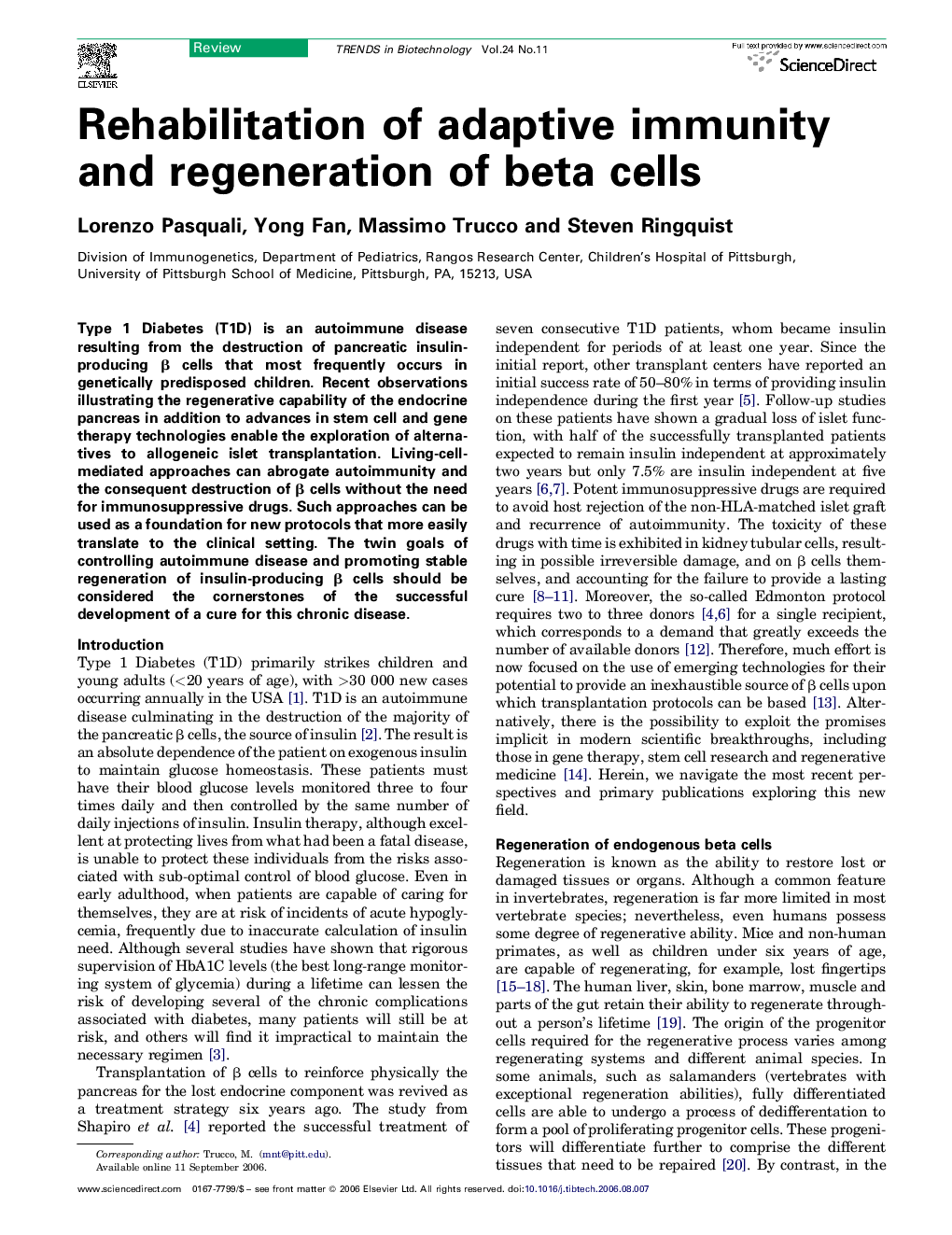| Article ID | Journal | Published Year | Pages | File Type |
|---|---|---|---|---|
| 37636 | Trends in Biotechnology | 2006 | 7 Pages |
Type 1 Diabetes (T1D) is an autoimmune disease resulting from the destruction of pancreatic insulin-producing β cells that most frequently occurs in genetically predisposed children. Recent observations illustrating the regenerative capability of the endocrine pancreas in addition to advances in stem cell and gene therapy technologies enable the exploration of alternatives to allogeneic islet transplantation. Living-cell-mediated approaches can abrogate autoimmunity and the consequent destruction of β cells without the need for immunosuppressive drugs. Such approaches can be used as a foundation for new protocols that more easily translate to the clinical setting. The twin goals of controlling autoimmune disease and promoting stable regeneration of insulin-producing β cells should be considered the cornerstones of the successful development of a cure for this chronic disease.
